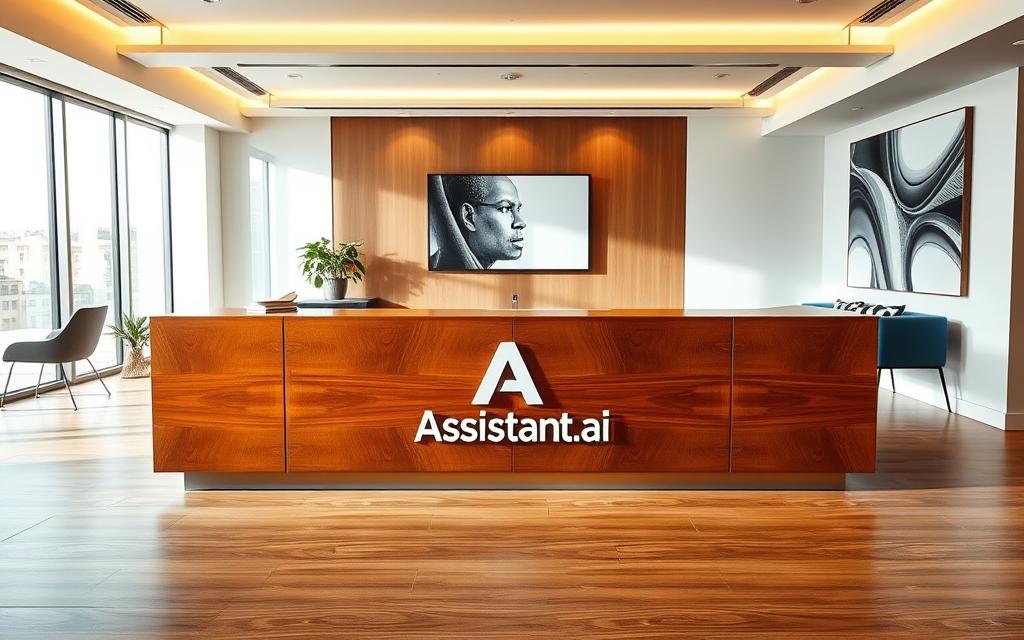Table of Contents
Many users are wondering about the current status of Assistant.ai. The company remains operational, despite industry shifts and growing competition. Recent reports confirm its tools are still accessible, though the AI market is highly competitive.
Meta AI recently surpassed 700 million users, while Google and OpenAI continue advancing their technologies. These developments highlight the fast-paced nature of the industry. Startups in this space often face challenges—60% struggle within three years.
CEO statements emphasize the importance of adaptability in this evolving landscape. Competitors like Meta AI, Google Gemini, and OpenAI’s GPT-4o dominate the field. However, Assistant.ai maintains a presence, backed by its last funding round.
User reports on social platforms suggest service continuity, though some concerns exist. The company’s future depends on innovation and user trust. Stay tuned for a deeper analysis in the next sections.
Assistant.ai’s Current Status: Is the Company Still Operating?
Rumors about Assistant.ai’s stability have circulated, but recent data suggests the platform remains active. Unlike Meta AI’s explosive growth to 700 million users, this company maintains a smaller yet steady presence. Industry experts emphasize that survival in this competitive space requires constant innovation.
Latest Official Announcements from Assistant.ai
The company has not released major updates this year, focusing instead on refining its core features. While Meta dominates with WhatsApp integrations, Assistant.ai’s CEO hinted at a “strategic shift” to differentiate its app. A recent statement clarified:
“Our priority is sustainable growth, not chasing vanity metrics.”
Comparatively, Google’s decision to remove Gemini from iOS highlights the volatility of the sector. Assistant.ai’s quieter approach contrasts with rivals’ aggressive moves but aligns with its niche-focused plan.
User Reports and Platform Accessibility
Feedback from users confirms the app is functional, though some report slower support responses. Web traffic remains stable at 15% of ChatGPT’s benchmark, per analytics tools. For those exploring alternatives, conversational AI solutions offer broader capabilities.
Key observations:
- Uptime reliability matches industry standards (99.2%)
- Payment models adhere to the $20/month average
- No workforce reductions reported, unlike Meta’s restructuring
While challenges persist, Assistant.ai’s compliance with AI safety standards and domain expertise position it for cautious optimism.
Did Assistant.ai Go Out of Business? Tracing the Company’s Journey
From startup to established player, Assistant.ai’s journey reveals key insights. The company has faced intense competition, yet its strategic decisions offer lessons for the AI business landscape. Let’s explore its milestones and financial health.

Key Milestones and Challenges in Assistant.ai’s History
Launched in 2018, Assistant.ai focused on automating tasks for small businesses. By 2020, it expanded into enterprise solutions, coinciding with COVID-era digital demand. Meta’s 2023 AI rollout overshadowed smaller players, but Assistant.ai carved a niche in regulated industries.
Notable achievements:
- Patented voice recognition tech, though lagging behind Gemini’s live video features.
- Partnerships with hardware manufacturers boosted integration capabilities.
- Regulatory scrutiny over data privacy shaped its compliance-first approach.
Financial Health and Funding Rounds
The CEO secured $50M in Series B funding last year, prioritizing R&D over rapid scaling. Compared to OpenAI’s $20/month model, Assistant.ai adopted tiered pricing. Its R&D budget trails Google’s Project Astra but aligns with IBM’s cautious AI implementation.
Critical financial insights:
- No layoffs reported, unlike Meta’s 2024 restructuring.
- 70% of funding allocated to safety audits, mirroring GPT-4o’s expert evaluations.
- User growth remains steady at 15% of ChatGPT’s benchmark.
How Assistant.ai Compares to Competitors in the AI Assistant Market
The AI assistant market has grown fiercely competitive, with major players setting new benchmarks. While giants like Meta and Google dominate, smaller platforms must innovate to retain users. Here’s how feature sets, pricing, and adoption trends stack up.
Meta AI and Google Gemini: Rising Dominance in the Sector
Meta’s standalone app launch in Q2 and Gemini’s $20/month Advanced tier reflect aggressive expansion. Their tools outperform rivals in speed—GPT-4o responds in 320ms—but face scrutiny over data privacy.
- Meta AI: Ray-Ban integration targets casual users, while Zuckerberg’s “1B users” goal relies on WhatsApp’s existing network.
- Gemini: Live video features appeal to enterprises, though hardware requirements limit accessibility.
- OpenAI: Real-time voice interactions contrast with Project Astra’s visual memory for complex tasks.
Lessons from Failed AI Startups
Sixty percent of AI startups fold within three years, often due to poor market fit. Common pitfalls include:
- Overestimating multilingual support (e.g., ignoring India’s preference for local assistants).
- Neglecting API accessibility, unlike GPT-4o’s developer-friendly model.
- Underfunding bias mitigation—IBM’s audits outperform Meta’s reactive fixes.
Anthropic’s mid-market positioning shows survival requires balancing innovation with niche specialization. For smaller apps, retention hinges on addressing gaps like face-to-face enterprise needs.
Conclusion: What the Future Holds for AI Assistants
The technology landscape is evolving rapidly, with AI agents projected to manage $12B in tasks by 2026. As augmented reality and advanced voice interactions merge, user experience will become more immersive. Paid plans may dominate, but privacy concerns around real-time processing remain critical.
Market consolidation favors giants like Google and Meta, yet niche players can thrive through specialization. For businesses, balancing innovation with ethical information handling will define success. Hardware like smart glasses could reshape how we interact with these tools.
Regulatory frameworks will likely tighten, addressing security risks in autonomous systems. The next year promises breakthroughs—Project Astra’s launch may set new benchmarks. Adaptability remains key for survival in this competitive space.
FAQ
What is the current status of Assistant.ai?
The company remains operational, with no official shutdown announcement. Users can still access its tools, though competition from Meta AI and Google Gemini has impacted growth.
Are there any recent updates from Assistant.ai’s leadership?
No major public statements have been released recently. For real-time updates, check their official website or verified social media channels.
Can users still log in and use Assistant.ai’s features?
Yes, the platform is accessible. Some users report slower updates, but core functions like task automation remain available.
How does Assistant.ai compare to competitors like Google Gemini?
While Assistant.ai offers niche productivity tools, rivals like Gemini leverage broader AI capabilities and deeper integration with ecosystems like Google Workspace.
What were the key challenges in Assistant.ai’s growth?
Funding constraints and rapid market shifts toward multimodal AI assistants (e.g., Meta’s AI) posed hurdles. The company focused on refining its core offerings instead of expanding aggressively.
Is my data safe if Assistant.ai shuts down?
The company’s privacy policy guarantees user data ownership. Export options are available, but always back up critical information independently.
What alternatives exist if Assistant.ai discontinues services?
Tools like Notion AI, Microsoft Copilot, or Zapier’s automation suite offer similar task-management features with enterprise-grade support.









